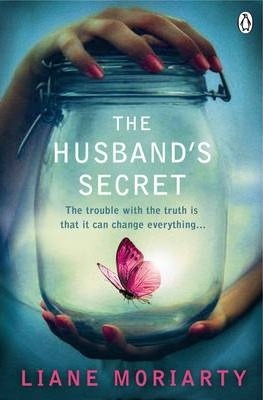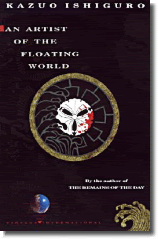
A bad choice for a book to read after Oscar Wilde and Tom Robbins. The former has a rich language and the latter, a great sense of humour. I have heard from people that Naipual’s books are humorous. May be my sense of humour is pathetic, I didn’t see any humour in this book.
The book is the story of Ganesh, his failure as a primary teacher, his transformation into a mystic, a writer and finally an MBE. The story is set in Trinidad and concentrates on the small Indian community settled there. I am confused about the location and the people. They speak a weird dialect of English and it is weird to an extent that the dialgoues began to irritate me. Every sentence spoken in adorned with man or girl (and sometimes both) and no where grammatically correct. If the dialogues are getting on your nerves, the narration doesn’t help much. It is bland and sometimes makes you skip it. And why do newspapers in Trinidad carry reviews of Hindi films?
Ganesh’s metamorphosis is not totally belieavable. He appears to be a useless, good for nothing guy at one time, and the know-it-all mystic with a lot of self confidence at other times. There is nothing about Ganesh which the reader would remember. Behary, Ganesh’s friend, is an interesting character. I enjoyed the conversations between Behary (Suruj Poopa, as in Suruj ke pappa) and his wife, Suruj Mooma (you know what that means). Ganesh’s wife and his father-in-law add a bit of garnishing.
I appreciate the subtle, polished humour of P G Wodehouse and also in the face, wacky humour of Tom Robbins. Naipaul’s humour lies somewhere in between, and, I think, is targetted at the Indian community settled overseas. I can imagine the migrated Indians reading and laughing at the Indian culture and practices. I might be wrong about who his target audience is, but I am sure I am not one of them. This was my first Naipaul book, and in all probability, this will be the last one too.





































































































November 17, 2007 at 11:35 am
[…] Mystic Masseur – VS Naipaul anaamica added an interesting post on The Mystic Masseur – VS NaipaulHere’s a small excerptA bad […]
December 4, 2007 at 8:10 pm
You have to be the most close minded person I have ever come across
December 5, 2007 at 4:14 am
Wow Shane, thanks for the compliment!
January 21, 2008 at 6:07 pm
What a shame you are such a careless reader. The Mystic Masseur is a wonderful, understated narrative full of sly humour and psychological insight. I do beg you to read it again and then discuss it with others who have got more out of it. Then you could try A House for Mr Biswas, Naipaul’s masterpiece.
January 22, 2008 at 11:07 am
As I said in my review, I am through with Mr. Naipaul. You seem to have liked this book of his. Mind telling me what psychological insight you got from this book?
January 27, 2008 at 8:56 pm
I am not fully agree with Anaamica.I have just completed
the novel and I find it interesting.For a while if I just accept that Anaamica is right than can we judge a novel only from the point of view of its lack of humour?The answer will be a big “NO”.
The novel shows us the rise of the protagonist
Ganesh from a boy from a village to a successfu writer,masseur and politician.The novel shows us that success doesn’t come in a day as we see Ganesh going through the stage of failure as a school teacher,masseurwriter in his life.
but eventually he got tremendous success.
But I am agree with Anamikaa in a few matters.The novel contains funny use of words like “sheself” instead of ‘herself’.Maybe Naipaul shows the use of English by Indian communities in Trinidad as we also find use of Hindi words in the discourse of the characters.
I think in the novel there are numerous instances of houmour on Indian masseurs who kills patients rather than treat;superstition of Indians as in the novel a patient see clouds trying to kil him.Mention must be made of the marriage ceremony of Ganesh and Leela,a very long procees
which creates a sense of borringness in me as a reader,thus Naipaul may tries to makes humour of Indian rituals.
However as a first novel of Naipaul we cannot demand a lot.But the novel may be taken as a pathway to his another novel “India:A Wounded Civilization”which is regarded as a satire on India.
January 27, 2008 at 9:21 pm
I am not fully agree with Anaamica.For a while though I am agree with her than can we suppose to think that
humuor is the only criteria for judging a writer.The answer will be a big “NO”.
The novel shows the rise of the protagonist Ganesh
from a boy of a village to a successful writer, masseur and
politician.Naipaul shows us success doesn’t come in a day
as we see in the life of Ganesh who got initial failures in his life but throughout he stands firm and eventually success
kisses his feet.
But I am agree with Anaamica in a few matters.In the novel there are uses of incorrect English like”sheself”
instead of’herself’.Naipaul may shows the use of English
among Indian communities at Trinidad as we also find Hindi words in the discurse of the characters.
There are instances of humour on Indian rituals,superstition,customs etc. In the novel author makes humour of masseurs who kills the patients rather than save;shows superstition as apatient sees clouds going to take his life.The long marriage ceremony of Ganesh is borring to me as a reader.
But as the first novel of Naipaul we cann’t expect too much as the novel paves the way for “India:A Wounded Civilization”a novel by the same writer critiquing Indians.
April 2, 2009 at 3:39 pm
the mystic masseur is a great novel. it contains humours on superstitions, indian customs, etc. it gives a nice picture of a protagonist. it contains sly humour and pyschological insight.
THE MYSTIQUE MASSEUR is a masterpiece. I suggest everyone to read it once.
April 11, 2009 at 4:29 pm
in order to enjoy , understand and appreciate the full contour of the novel and therby the resulting humour , you need to come up with the realization of the tone -particularly the falling-rising tone- of the mindset of the people of north- indian origin.
suhail
research scholar on v.s. naiaul
June 9, 2009 at 9:06 pm
I am yet to write a review on this but I could not help but comment my favorite comment on this one – we Indians have the habit of thinking that all great writers are foreigners (or not of Indian origin).
I just finished an EM Forster and believe you me Sir Naipaul is about a million times better.
Also what are you saying about Trinidad newspapers carrying reviews of Hindi films, that’s so silly of you, but of course Hindi films are very popular throughout the world esp because of Amitabh Bacchan and there are a whole lot of Indian settlers there!
And I cannot believe that you said Suraj Poppa is funny!!!!!
But hey that’s the beauty of democracy – you can have your own opinion! Cheers to that.
June 10, 2009 at 10:17 am
Thanks for dropping by, Ira.
We Indians have the habit of thinking that all great writers are foreigners (or not of Indian origin).
You might think so, I don’t. If you look at the list of books I have read, then you will see what I mean. Atul Gawande, Gaurav Suri, Hartosh Singh Bal, Namita Devidayal, Jhumpa Lahiri, Vikas Swarup – need I say more? Just because Naipaul is from my country, I can’t start liking him, like some people do. What has origin got to do with writing? A good writer is a good writer, no matter where he is from. Why be prejudiced?
Also what are you saying about Trinidad newspapers carrying reviews of Hindi films, that’s so silly of you, but of course Hindi films are very popular throughout the world esp because of Amitabh Bacchan and there are a whole lot of Indian settlers there!
This further proves my point that the target audience is not native Indians but those settled abroad. I rest my case.
And I cannot believe that you said Suraj Poppa is funny!!!!!
Umm, where did I say that?
June 10, 2009 at 9:46 pm
great to know that this blog gets updated unlike mine
tell me how do you manage!
September 30, 2009 at 7:51 pm
mate, stop reading anything if you did not like this book..i finished it for the second time yesterday…ur review sucked..
October 4, 2010 at 12:10 am
i haven’t read the book.
however, please do pick some of his other work.
Half A Life sucked but A House for Mr Biswas was wonderfully funny.
P.S. please don’t mind my asking, but why are the discussions/comments on your post so heated?
October 4, 2010 at 10:37 am
Hi! Thanks for dropping by. I doubt I will give Naipaul another try, but thanks for the suggestions anyway.
Why is the discussion so heated? People tend to get riled up when someone does not agree with their own opinion. As you can see, there are many people out there who are big Naipaul fans and they think I am ‘close minded’ and ‘stupid’ and ‘careless reader’. After reading their comments and their reaction, I am very happy I am not a Naipaul fan.
November 14, 2010 at 6:46 am
hey anaamica!! i have read that u know a lot of books especially with the mystic masseur. I was wondering if u could help me with a book review of this book before december…. plsss!! 🙂
November 9, 2010 at 9:21 pm
i want this novel in pdf form plz give me this urgently
January 20, 2011 at 2:05 am
I think in order to appreciate the novel beyond its, in my opinion, brilliant humour (which apparently isn’t for everyone, although you’re the first person I’ve met who doesn’t appreciate it), you’ve got to know a little more about Trinidadian history. The novel is, in fact, a very clever roman à clef for the rise of democracy in Trinidad and Tobago. It’s a political satire.
And to clear some things up. The “weird” English is actually Trinidadian English. To be honest, I think it would have been out of place if they’d spoken perfect Oxford English, with proper grammar. These are largely uneducated persona, remember?
Trinidad has a large Indo-creole community (40% of the nation’s population), which has been around since the abolition of slavery in 1838. They still speak Hindi amongst themselves, hence why Hindi films are so popular.
Ganesh may not have come across as completely believable, because he represents more than one figure in Trinidadian history. However, actions that may have been “unlikely” (though hardly impossible) have actually happened.
I personally don’t think this is directed specifically at the Indian community of Trinidad at all, to be honest. I’m Dutch myself and I greatly enjoyed the novel. Anyone with some knowledge of the history of Trinidad will see a great deal of symbolism in the novel. The structure, on closer inspection, is masterful.
Hope that answers some questions. 🙂
January 20, 2011 at 9:49 am
Arthur, I am really glad you took the time to leave a comment. And yours is the only comment which tries to tell me what I lack in order to appreciate this novel.
You do have a point there. The fact that I didn’t like this book could be because I have no clue about Trinidad. I can understand why people speak in weird English dialects, but I still find it irritating. I get your point though!
What other Naipaul have you read? Any other book which I might like? I just might give this writer a second try.
January 24, 2011 at 2:07 am
No problem. I´ve read A House for Mr Biswas and a Bend in the River as well, but I prefer The Mystic Masseur to either. I even wrote my college thesis on it!
Don’t worry about not liking Naipaul though. I wouldn’t recommend any of his other books if you didn’t like The Mystic Masseur. Life is short, read the books you enjoy! 😉
I don’t want you to be under the impression he’s a poor writer though. I mean, I have a passionate dislike of anything Oscar Wilde writes (and I read almost everything he wrote when I was stuck in a desert for almost a week with just his Collected Works), but I’ll be the first to acknowledge that a lot of people really like him.
I just scrolled through the books you’ve reviewed and couldn’t help but noticed how you reviewed two of the best works by two of my favourite authors (The Unbearable Lightness of Being by Kundera and Metamorphosis by Kafka) and wasn’t too positive about them. We have very different tastes, no doubt. No hard feelings!
(Although I really do think you completely missed the point of Metamorphosis. It’s arguably the most important story in Modernist literature, because of the way the characters are described. Kafka was the first to break with the Realist tradition, and he did it with some skill. Your comments on the translation are spot on though. It’s not half as powerful in English)
January 24, 2011 at 9:59 am
We couldn’t have been more dissimilar! Oscar Wilde is one of my favorite authors. I would read anything written by him and not get bored.
I have mixed feelings about The Unbearable Lightness of Being. I liked some portions of the book – the philosophical notes, but didn’t really care much about the story itself. I did enjoy that book, so I am going to read more of Kundera for sure. Metamorphosis was a let down. As you said, I just didn’t get the point. I am not well aware of the phases in the literature world and the evolution of literature, so I can’t appreciate if some author brought in a revolution. I am not that well read 🙂
Who do you like among the contemporary writers?
January 24, 2011 at 7:09 pm
Contemporary authors? Tough one. Milan Kundera is still alive and writing, so he’d definitely be up there. The Unbearable Lightness of Being and The Book of Laughter and Forgetting being my two favourite novels by him.
I’m also a big fan of the Latin American Boom! Movement, especially authors such as Gabriel García Márquez, Julío Cortázar and Mario Vargas Llosa. Hopscotch (Rayuela) is the best novel ever written, period.
As a student of Arabic, I tend to read quite a lot of Arab writers as well. Adonis is a great poet and the recently deceased Naguib Mahfouz a magnificent novelist.
February 1, 2011 at 4:37 pm
Kundera is someone I want to read more of. Marquez’s ‘One Hundred Years of Solitude’ was unbearable for me, I just couldn’t go past the first few pages. I have ‘News of a Kidnapping’ next on my list and I hope I like this one better.
I read the wiki entry on Hopscotch and I must say its very interesting. ‘Multiple endings’, ‘expendable chpaters’, ‘infinite loops’ – I am very curious now, I want to read the book. Thanks for the recommendation!
Good you brought up poetry. Are you into poetry too? What poets do you like? I tried my hand at reading poetry, but I think I was not born with that gene which is essential to appreciate poetry. I still try sometimes, but I fail miserably.